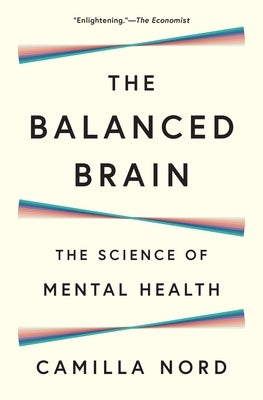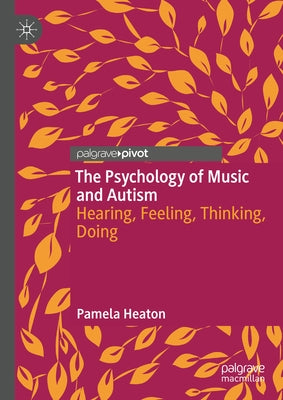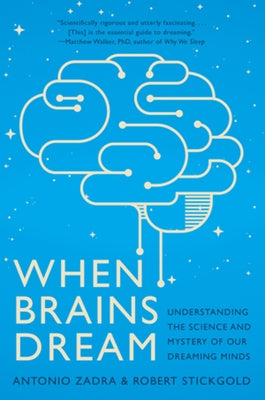Sale 10% Off Your First Order
Sale 10% Off Your First Order
Movies & TV
Toys & Collectibles
- Home
- Fundamentals of Brain Network Analysis
Description
Fundamentals of Brain Network Analysis is a comprehensive and accessible introduction to methods for unraveling the extraordinary complexity of neuronal connectivity. From the perspective of graph theory and network science, this book introduces, motivates and explains techniques for modeling brain networks as graphs of nodes connected by edges, and covers a diverse array of measures for quantifying their topological and spatial organization. It builds intuition for key concepts and methods by illustrating how they can be practically applied in diverse areas of neuroscience, ranging from the analysis of synaptic networks in the nematode worm to the characterization of large-scale human brain networks constructed with magnetic resonance imaging. This text is ideally suited to neuroscientists wanting to develop expertise in the rapidly developing field of neural connectomics, and to physical and computational scientists wanting to understand how these quantitative methods can be used to understand brain organization.
About the Author
Fornito, Alex: - Alex Fornito completed a PhD in the Departments of Psychology and Psychiatry at the University of Melbourne, Australia, followed by Post-Doctoral training at the University of Cambridge, UK. He is an associate professor, Australian Research Council Future Fellow, and Deputy Director of the Brain and Mental Health Laboratory in the Monash Institute of Cognitive and Clinical Neurosciences, Australia. Alex's research uses cognitive neuroscience, network science, and graph theory to understand brain network organization in health and disease. He has published over 100 scientific articles, much of which are focused on the development and application of new methods to understand how brain networks dynamically adapt to changing task demands, how they are disrupted by disease, and how they are shaped by genetic influences.Zalesky, Andrew: - Andrew Zalesky completed his PhD in the Department of Electrical and Electronic Engineering at the University of Melbourne, Australia. He works with neuroscientists, utilizing his engineering expertise in networks to understand human brain organization in health and disease. He has developed widely used methods for modeling and performing statistical inference on brain imaging data. His methods are utilized to investigate brain connectivity abnormalities in disease. He identified some of the first evidence of connectome pathology in schizophrenia. Andrew currently holds a fellowship from the National Health and Medical Research Council of Australia. He is based at the University of Melbourne and holds a joint appointment between the Melbourne Neuropsychiatry Centre and the Melbourne School of Engineering. He leads the Systems Neuropsychiatry Group.Bullmore, Edward: - Ed Bullmore trained in medicine at the University of Oxford and St Bartholomew's Hospital, London, and then in psychiatry at the Bethlem Royal and Maudsley Hospital, London. In 1993, he was a Wellcome Trust (Advanced) Research Fellow at the Institute of Psychiatry, King's College London, where he completed a PhD in the statistical analysis of MRI data, before moving to Cambridge as Professor of Psychiatry in 1999. Currently, he is co-Chair of Cambridge Neuroscience, Scientific Director of the Wolfson Brain Imaging Centre, and Head of the Department of Psychiatry in the University of Cambridge. He is also an honorary Consultant Psychiatrist, and Director of R&D in Cambridgeshire and Peterborough Foundation NHS Trust. Since 2005, he has worked half-time for GlaxoSmithKline, currently focusing on immuno-psychiatry. He has been elected as a Fellow of the Royal College of Physicians, the Royal College of Psychiatrists, and the Academy of Medical Sciences. He has published about 500 scientific papers, and his work has been highly cited. He has played an internationally-leading role in understanding brain connectivity and networks by graph theoretical analysis of neuroimaging and other neuroscientific datasets.
About the Author
Fornito, Alex: - Alex Fornito completed a PhD in the Departments of Psychology and Psychiatry at the University of Melbourne, Australia, followed by Post-Doctoral training at the University of Cambridge, UK. He is an associate professor, Australian Research Council Future Fellow, and Deputy Director of the Brain and Mental Health Laboratory in the Monash Institute of Cognitive and Clinical Neurosciences, Australia. Alex's research uses cognitive neuroscience, network science, and graph theory to understand brain network organization in health and disease. He has published over 100 scientific articles, much of which are focused on the development and application of new methods to understand how brain networks dynamically adapt to changing task demands, how they are disrupted by disease, and how they are shaped by genetic influences.Zalesky, Andrew: - Andrew Zalesky completed his PhD in the Department of Electrical and Electronic Engineering at the University of Melbourne, Australia. He works with neuroscientists, utilizing his engineering expertise in networks to understand human brain organization in health and disease. He has developed widely used methods for modeling and performing statistical inference on brain imaging data. His methods are utilized to investigate brain connectivity abnormalities in disease. He identified some of the first evidence of connectome pathology in schizophrenia. Andrew currently holds a fellowship from the National Health and Medical Research Council of Australia. He is based at the University of Melbourne and holds a joint appointment between the Melbourne Neuropsychiatry Centre and the Melbourne School of Engineering. He leads the Systems Neuropsychiatry Group.Bullmore, Edward: - Ed Bullmore trained in medicine at the University of Oxford and St Bartholomew's Hospital, London, and then in psychiatry at the Bethlem Royal and Maudsley Hospital, London. In 1993, he was a Wellcome Trust (Advanced) Research Fellow at the Institute of Psychiatry, King's College London, where he completed a PhD in the statistical analysis of MRI data, before moving to Cambridge as Professor of Psychiatry in 1999. Currently, he is co-Chair of Cambridge Neuroscience, Scientific Director of the Wolfson Brain Imaging Centre, and Head of the Department of Psychiatry in the University of Cambridge. He is also an honorary Consultant Psychiatrist, and Director of R&D in Cambridgeshire and Peterborough Foundation NHS Trust. Since 2005, he has worked half-time for GlaxoSmithKline, currently focusing on immuno-psychiatry. He has been elected as a Fellow of the Royal College of Physicians, the Royal College of Psychiatrists, and the Academy of Medical Sciences. He has published about 500 scientific papers, and his work has been highly cited. He has played an internationally-leading role in understanding brain connectivity and networks by graph theoretical analysis of neuroimaging and other neuroscientific datasets.
Related Products
You May Also Like
-
$14.99 $19.95
-
$12.99 $18.00
-
$17.99 $24.95
-
$21.99 $28.95
-
$21.99 $29.99
-
$17.99 $24.95
Recently Viewed Products
Related Products
Recently viewed products
Shopping cart
close
-
WHAT ARE YOU LOOKING FOR?Search
- Home
- Movies & TV
- Music
- Toys & Collectibles
- Video Games
- Books
- Electronics
- About us
- Castle Chronicles
- Contact us
- Login / Register























